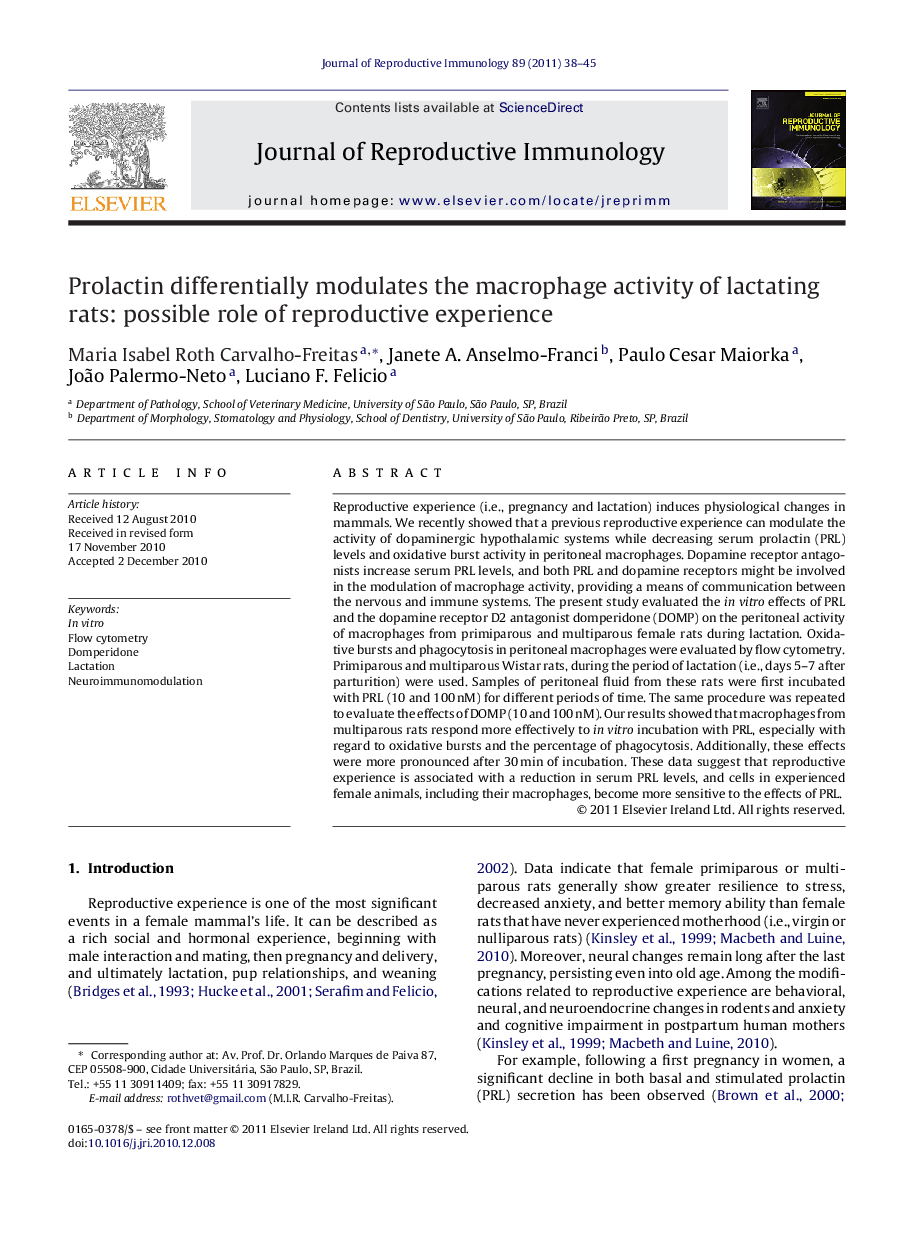| Article ID | Journal | Published Year | Pages | File Type |
|---|---|---|---|---|
| 6188386 | Journal of Reproductive Immunology | 2011 | 8 Pages |
Reproductive experience (i.e., pregnancy and lactation) induces physiological changes in mammals. We recently showed that a previous reproductive experience can modulate the activity of dopaminergic hypothalamic systems while decreasing serum prolactin (PRL) levels and oxidative burst activity in peritoneal macrophages. Dopamine receptor antagonists increase serum PRL levels, and both PRL and dopamine receptors might be involved in the modulation of macrophage activity, providing a means of communication between the nervous and immune systems. The present study evaluated the in vitro effects of PRL and the dopamine receptor D2 antagonist domperidone (DOMP) on the peritoneal activity of macrophages from primiparous and multiparous female rats during lactation. Oxidative bursts and phagocytosis in peritoneal macrophages were evaluated by flow cytometry. Primiparous and multiparous Wistar rats, during the period of lactation (i.e., days 5-7 after parturition) were used. Samples of peritoneal fluid from these rats were first incubated with PRL (10 and 100Â nM) for different periods of time. The same procedure was repeated to evaluate the effects of DOMP (10 and 100Â nM). Our results showed that macrophages from multiparous rats respond more effectively to in vitro incubation with PRL, especially with regard to oxidative bursts and the percentage of phagocytosis. Additionally, these effects were more pronounced after 30Â min of incubation. These data suggest that reproductive experience is associated with a reduction in serum PRL levels, and cells in experienced female animals, including their macrophages, become more sensitive to the effects of PRL.
